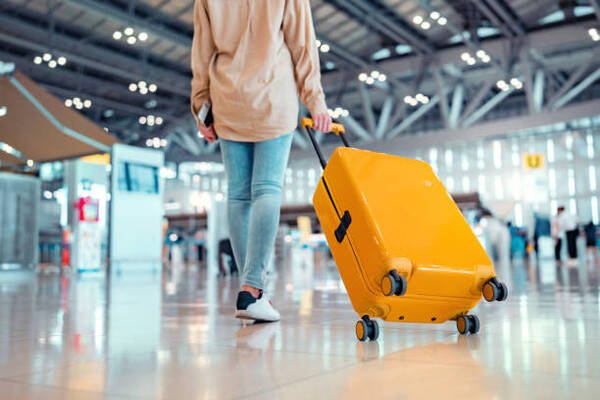Tips & Advices
Following Venus Williams’ comment on health insurance, here’s what to know about athlete coverage

Venus Williams’ recent singles win at the D.C. Open showcased her longevity and brought attention to health coverage for aging athletes following a joking comment she made in an on-court interview.
“I had to come back for the insurance,” the five-time Wimbledon champion said after Tuesday’s match, her first in 16 months. “They informed me this year that I’m on COBRA, so it’s like, I got to get my benefits on.”
The 45-year-old Williams, who has won seven major singles titles, became the second-oldest woman to win a tour-level singles match in professional tennis with Tuesday’s victory. After losing on Thursday, she acknowledged that her comment on health insurance was a “fun and funny moment.”
The Consolidated Omnibus Budget Reconciliation Act, more commonly referred to as COBRA, allows Americans to stay on their employer’s insurance plan for a limited amount of time after leaving their job. It comes with high costs.
Williams’ comment led to questions about health insurance in the sports world.
For most active professional athletes, partially or fully subsidized health insurance is provided by their league or governing body and guaranteed in their collective bargaining agreement. A CBA is an agreement reached between a league and its players that guarantees certain levels of player compensation and benefits, and can be renegotiated every few years.
So when athletes are playing, they’re usually covered. But Williams, coming back to the sport after a 16-month hiatus, brought to light how long that insurance lasts — or doesn’t last — for athletes when they’re not playing.
Venus Williams returns the ball against Magdalena Frech, of Poland, during a match at the Citi Open tennis tournament Thursday, July 24, 2025, in Washington. Credit: AP/Nick Wass
Women’s tennis
In the WTA, the governing body of the women’s tour, players are eligible to enroll in the health insurance plan if they are ranked in the top 500 in singles or top 175 in doubles and have played a minimum of three WTA 250 level or above tournaments that year. If players are in the top 150 in singles or top 50 in doubles, the WTA will pay a portion of the premiums.
If a player is no longer eligible under those requirements, they can enroll in COBRA for up to 18 months, which is likely the situation that Williams was referencing. That is also the WTA’s only option for retiring players.
“Nobody wants to be on COBRA, right?” Williams said after her second-round loss on Thursday night. “That remains an issue in my life. … Obviously (the interview was) a fun and funny moment, but it’s an issue that people are dealing with, so it is serious.”
Men’s tennis
The ATP provides health insurance to men’s tennis players who rank in the top 250 in singles or top 50 in doubles. All other players with a ranking point are given the opportunity to purchase health insurance through the ATP’s provider.
Venus Williams returns the ball against Magdalena Frech, of Poland, during a match at the Citi Open tennis tournament Thursday, July 24, 2025, in Washington. Credit: AP/Nick Wass
For retired players, the only option is COBRA for up to three years.
Golf
As an individual sport without a CBA, golf tours vary. They do have a group insurance plan that is available to active members of the PGA Tour, the PGA Tour Champions (the tour for golfers over 50) and the Korn Ferry Tour (the feeder circuit for the PGA Tour). For players who meet certain “performance criteria,” including how many tournaments they played and how often they won, the PGA Tour will partially subsidize the plan.
In retirement, players are responsible for their own insurance. Some players join the PGA Tour Champions after the PGA Tour and play into their mid-60s, during which they maintain coverage. Top players can receive a subsidy from the PGA Tour in retirement.
The LPGA Tour, the women’s professional golf tour, started offering its players fully funded health insurance for the first time this year. Before this year, players were given a $4,000 stipend.
NBA
NBA players have access to one of the most inclusive insurance plans in retirement. If they played at least three years in the league, retired NBA players are eligible for fully funded health insurance in retirement, and if they played at least 10 years, they will have health care covered for their entire family.
WNBA
WNBA players are fighting for retirement health care as part of their new CBA, which they are currently negotiating with the league. Those negotiations have been heated, and the most recent meeting between the two sides last weekend did not result in an agreement.
One unique facet of the WNBA’s healthcare is that athletes who have spent more than eight years in the league can be reimbursed up to $20,000 a year for costs related to adoption, surrogacy, egg freezing or additional fertility treatments.
NFL
The NFL has less long-term coverage for retirees than most other leagues — athletes who played in the league for at least three years can remain on the NFL health insurance plan, but only for five years into retirement.
NHL
NHL players who have played more than 160 games with the league, which is about two seasons, are eligible to buy NHL health insurance for their retirement. The retirement insurance plan is eligible for partial subsidization from the league.
MLB
Baseball players who spent at least four years in the majors have the option to pay premiums to stay on the MLB’s health care plan indefinitely.
Minor league baseball has its own separate CBA, which also guarantees health insurance for active players. In the minors, however, players who get cut or leave the league lose coverage at the end of that month.
Tips & Advices
Travel alert: Landmines, theft, violence concerns at these 2 Southeast Asian countries
Federal authorities are warning Americans that traveling to two Southeast Asian countries can be dangerous and they should be extra cautious if visiting. They also advise against traveling to the countries’ border altogether.
The U.S. Department of State advisory level for Thailand and Cambodia were increased Friday to a Level 2, “exercise increased caution.”
The travel advisories were raised due to unrest in Thailand and concerns for crime and landmines in Cambodia, according to the advisories.
The U.S. government also issued a Level 4 “do not travel” advisory, advising against traveling within about 30 miles of the Thai and Cambodian border due to fighting between the countries’ military forces that started in May.
“There are reports of fighting, including rocket and artillery fire, between Cambodian and Thai forces along the border. Armed conflict has led to reports of civilian casualties,” the advisors read. “There is a collateral risk of violence, and U.S. citizens are advised to avoid all but essential travel to within 50km of these border areas until further notice. The U.S. government has limited ability to provide emergency services to U.S. citizens in these provinces due to the ongoing risk of armed conflict.”
The caution regarding travel to Thailand is “due to civil unrest associated with ongoing insurgent activities in the Yala, Pattani, and Narathiwat provinces,” that advisory said.
There is occasional violence between Thai security services and armed insurgents in those three southernmost provinces, the advisory explained, and 17 districts in that region are under a state of emergency due to the violence. Visitors risk getting caught up in the fighting and U.S. officials can’t guarantee they’d be able to help, the advisory warned.
The issue in Cambodia is different. That country’s capital city, Phnom Penh, is dealing with street crime, with many travelers losing their phone and bags to thieves, that advisory said. Sexual assault and murder are also concerns.
Landmines and unexploded ordnances are the concern in the provinces of Battambang, Banteay Meanchey, Pursat, Siem Reap, Pailin, and Kampong Thom, the advisory said, particularly in forested areas and dry rice paddies.
If you decide to travel to Cambodia or Thailand, the U.S. Department of State advises:
- “Do not physically resist any robbery attempt.
- Have evacuation plans that do not rely on U.S. government assistance.
- Enroll in the Smart Traveler Enrollment Program (STEP) to get important updates and alerts from the U.S. embassy or consulate. Enrolling helps the U.S. embassy or consulate contact you or your emergency contact in an emergency.
- Review the Country Security Report for Cambodia and Thailand.
- Prepare a contingency plan for emergency situations. Review the Traveler’s Checklist.
- Visit the CDC page for the latest Travel Health Information related to your travel.
- The government highly recommends you buy insurance before you travel. Check with your travel insurance provider about evacuation assistance, medical insurance, and trip cancellation coverage.”
If you purchase a product or register for an account through a link on our site, we may receive compensation. By using this site, you consent to our User Agreement and agree that your clicks, interactions, and personal information may be collected, recorded, and/or stored by us and social media and other third-party partners in accordance with our Privacy Policy.
Tips & Advices
Venus Williams and her health insurance: 4 things to know : Shots

Venus Williams returns a shot against Magdalena Frech on day 4 of the Mubadala Citi DC Open. Williams, 45, said she’s been on COBRA health insurance.
Scott Taetsch/Getty Images
hide caption
toggle caption
Scott Taetsch/Getty Images
What drove Venus Williams to the court at the Mubadala Citi DC Open this week after a year-long break from competition?
“I had to come back for the insurance,” she quipped in an on-court interview after winning her first-round match on Tuesday. “I was like, ‘I got to get my benefits on!’ Started training.”
The crowd at the stadium in D.C. laughed knowingly. “You guys know what it’s like!” she said.
Venus Williams made the remarks about health insurance after winning her first round match on Tuesday.
YouTube
Even if you’re not a seven-time grand slam champion who just became the oldest player to win a pro women’s singles match in decades, you probably know the job-health insurance juggle that Williams was talking about.
Here are four ways U.S. health insurance can be challenging for Williams and many other Americans.
1. Her job is a little off and on.
In the U.S., most working-age people get their health insurance through work. Their employer gives them a few plan options and then pays a healthy chunk of the premium cost, with the rest deducted from employees’ paychecks.
When someone leaves a regular job maybe to start a business or take a break, there goes that health insurance deal. That’s essentially what happened to Williams — she took a break from competition and lost access to her regular benefits.
The health insurance Venus Williams got through the Women’s Tennis Association was a “best-in-class global medical, dental and vision insurance plan,” WTA wrote in a statement to NPR. In order to be eligible, players have to have a certain ranking and play a certain number of events in the previous year, according to the statement, and coverage lasts for the full calendar year.
“They informed me earlier this year I’m on COBRA,” Williams explained on the court Tuesday. COBRA is a law that allows you to keep your job-based insurance plan after your job ends, but you have to pay for the whole premium yourself.
“With COBRA, you may have a very good plan, but your health care costs are going to go up,” explains Miranda Yaver, health policy professor at the University of Pittsburgh. It’s notoriously expensive, often $500 per month or more. COBRA to cover a whole family’s insurance premium can easily rival a mortgage payment.
Venus Williams is a multi-millionaire, so the premium cost might not matter to her in the same way it does to the average person, especially if it allows her to keep that “best-in-class” plan she’s used to.
2. She has health care needs.
“Let me tell you, I’m always at the doctor, so I need this insurance,” Williams said in her courtside interview.
Williams recently explained she had surgery for uterine fibroids that had gone undertreated for years, she said. She also was diagnosed with an auto-immune condition called Sjogren’s syndrome in 2011.
She’s also an elite athlete. “Someone in her position might need physical therapy, sports, medicine, specialized care, and to be able to get that anywhere in the world,” says Cynthia Cox, a vice president at the health research organization KFF.
Plus, Williams is now 45 years old. Health insurance costs generally increase with age, as do health problems.
All of that could make finding a health plan that works for her more complicated than for most people.
3. She has way more options than she used to.
Before the Affordable Care Act, Venus Williams would have really been in a tough spot.
Professional athletes were included on a list of “Ineligible Occupations” — jobs that health insurance companies deemed too risky to provide coverage for — along with loggers, miners and taxi cab drivers.
Also back then, “even a wealthy person might have had preexisting conditions that could have made them uninsurable no matter how much money they were willing to pay for their premium,” Cox says.
That contributed to “job lock” — where people were stuck in their jobs no matter what because they needed the health insurance.
Now, if Williams really didn’t want to compete anymore and ran out of her 18-months of COBRA coverage, she could go to Healthcare.gov and buy an Affordable Care Act plan.
4. Only in the U.S., jobs and health insurance are deeply linked.
There’s no escaping the fact that in America, health insurance is connected to employment. “The dominant insurance model in the United States is employer-sponsored insurance,” Yaver says. (The story of how that came to be is related to the post-World War II economy when health insurance was a “fringe benefit,” to attract employees in a tight labor market.) Yaver adds that for workers who get insurance from their jobs, it’s often “a good deal.”
Since Congress passed the One Big Beautiful Bill Act, the public insurance plan for low-income people, Medicaid, will soon be tied to work, too. Beneficiaries will have to periodically prove they’re working a certain number of hours per month to be able to keep their health benefits. That requirement will affect mostly middle-aged, low-income women, according to a recent analysis.
For Venus Williams, the off-and-on nature of her job that comes with a high risk of injuries makes employer-based health insurance especially hard. In a way, the tennis hall-of-famer is dealing with a very special version of “job lock.”
Her fans can celebrate, though. Even if it’s for the health insurance, they get to see her on the court again; she’s playing a tournament next month in Cincinnati.
Tips & Advices
Thailand, Cambodia, And Myanmar Face Urgent Travel Warnings From UK Foreign Office, Urging ‘All But Essential Travel’ Amid Escalating Security Risks

Saturday, July 26, 2025
The UK Foreign Office has issued urgent travel warnings for Thailand, Cambodia, and Myanmar, advising against all but essential travel to these regions due to escalating security risks. The advisory, updated on July 24, comes in response to rising tensions, including violence along the borders, political instability, and ongoing conflicts that pose significant threats to travelers’ safety. As a result, the Foreign Office has cautioned that ignoring these warnings could lead to insurance issues, urging travelers to carefully consider the risks before making travel plans.
Travelers planning trips to Thailand and surrounding regions have been urged to verify their travel details carefully to ensure their insurance remains valid. The Foreign, Commonwealth & Development Office (FCDO) issued a new travel warning in their July 24 update, highlighting regions with increased risks for travelers. This advisory affects several areas in Thailand, Cambodia, and Myanmar, warning against non-essential travel due to escalating tensions and safety concerns.
Thailand’s Updated Travel Advisory
The FCDO’s travel advisory for Thailand now specifically recommends avoiding all but essential travel within 50 kilometers of the Cambodia border, which includes the provinces of Buriram, Si Saket, Surin, and Ubon Ratchathani. This move comes in response to rising concerns over safety in these regions, which are experiencing heightened tensions. Travelers are strongly encouraged to check the latest travel advice before making plans, as ignoring these warnings could result in the invalidation of their travel insurance.
Impact on Travel Insurance
The FCDO has warned that travel insurance coverage may be voided if travelers disregard their recommendations. Insurance providers often require adherence to government-issued advisories to ensure coverage remains intact. In response, the GOV.UK website has updated its “warnings and insurance” and “regional risks” sections to reflect the current situation in Thailand and its neighboring areas.
FCDO Recommendations for Affected Areas
The updated advisory includes several key areas in southern Thailand, particularly near the Malaysia border, where security risks have been more prominent. The FCDO specifically advises against all but essential travel to the following provinces:
- Pattani Province
- Yala Province
- Narathiwat Province
- Southern Songkhla Province (south of the A43 road and south of the train line from Hat Yai to Padang Besar)
In addition to these provinces, the FCDO also advises against non-essential travel along the Hat Yai to Padang Besar train line due to the increased risk of attacks. This train route passes through regions that are currently experiencing violence, which poses significant safety risks to passengers. Travelers planning to use this route are strongly discouraged from doing so unless absolutely necessary.
Cambodia and Laos Border Concerns
Travelers are also cautioned about regions near the Cambodia border. The FCDO recommends avoiding all but essential travel within 50 kilometers of the Cambodia-Thailand border, which includes the provinces of Buriram, Si Saket, Surin, and Ubon Ratchathani. The situation in these border areas has become more volatile due to ongoing conflicts, and travelers are urged to proceed with caution.
Furthermore, not all land border crossings into Laos are open to foreign nationals. Even when border crossings are accessible, travelers may still need to secure a visa in advance. The FCDO advises all visitors to Laos to check entry requirements thoroughly before making travel arrangements. In border regions, travelers should remain vigilant and adhere to local authority guidelines to ensure their safety.
Myanmar Border Risks
The security situation along the Thailand-Myanmar border is unpredictable and can change rapidly. The FCDO highlights the need for travelers to consult the latest Myanmar travel advice before departing. Given the unstable security conditions in Myanmar, it is crucial for travelers to be aware of potential risks, which could include sudden escalations in violence or political unrest.
Ongoing Conflict at the Thailand-Cambodia Border
A significant development occurred on July 24, when fighting broke out along several points of the Thailand-Cambodia border. The conflict involved rocket and artillery fire, resulting in casualties and the evacuation of nearby communities. Due to the escalation, all land border crossings between the two countries have been temporarily suspended.
Several tourist sites near the border, including the Khao Phra Wihan (Preah Vihear) temple, the Ta Kwai and Ta Krabey temples, and the Ta Muen Thom temple, have been closed to the public for safety reasons. Additionally, there are unexploded landmines in the affected border areas, posing further danger to travelers. Consequently, the FCDO recommends limiting travel to these areas to essential purposes only until conditions improve.
In light of these safety concerns, travelers planning to visit Thailand, Cambodia, or Myanmar are urged to stay informed and take necessary precautions. Ignoring official travel advisories could result in serious risks to personal safety and potentially void insurance coverage. Travelers should consult the FCDO’s latest updates and ensure they follow all recommended safety measures when traveling in these high-risk areas.ed border areas, such as the Khao Phra Wihan/Preah Vihear temple, Ta Kwai/Ta Krabey temple, and Ta Muen Thom/Tamone Thom temple, are currently closed. The area is also home to unexploded landmines, posing additional risks. The FCDO advises against all but essential travel to these areas.
-

 Brand Stories6 days ago
Brand Stories6 days agoBloom Hotels: A Modern Vision of Hospitality Redefining Travel
-

 Brand Stories16 hours ago
Brand Stories16 hours agoCheQin.ai sets a new standard for hotel booking with its AI capabilities: empowering travellers to bargain, choose the best, and book with clarity.
-

 Destinations & Things To Do6 days ago
Destinations & Things To Do6 days agoUntouched Destinations: Stunning Hidden Gems You Must Visit
-

 AI in Travel6 days ago
AI in Travel6 days agoAI Travel Revolution: Must-Have Guide to the Best Experience
-

 Brand Stories3 weeks ago
Brand Stories3 weeks agoVoice AI Startup ElevenLabs Plans to Add Hubs Around the World
-

 Brand Stories2 weeks ago
Brand Stories2 weeks agoHow Elon Musk’s rogue Grok chatbot became a cautionary AI tale
-

 Destinations & Things To Do12 hours ago
Destinations & Things To Do12 hours agoThis Hidden Beach in India Glows at Night-But Only in One Secret Season
-

 Asia Travel Pulse3 weeks ago
Asia Travel Pulse3 weeks agoLooking For Adventure In Asia? Here Are 7 Epic Destinations You Need To Experience At Least Once – Zee News
-

 AI in Travel3 weeks ago
AI in Travel3 weeks ago‘Will AI take my job?’ A trip to a Beijing fortune-telling bar to see what lies ahead | China
-

 Brand Stories3 weeks ago
Brand Stories3 weeks agoChatGPT — the last of the great romantics







You must be logged in to post a comment Login